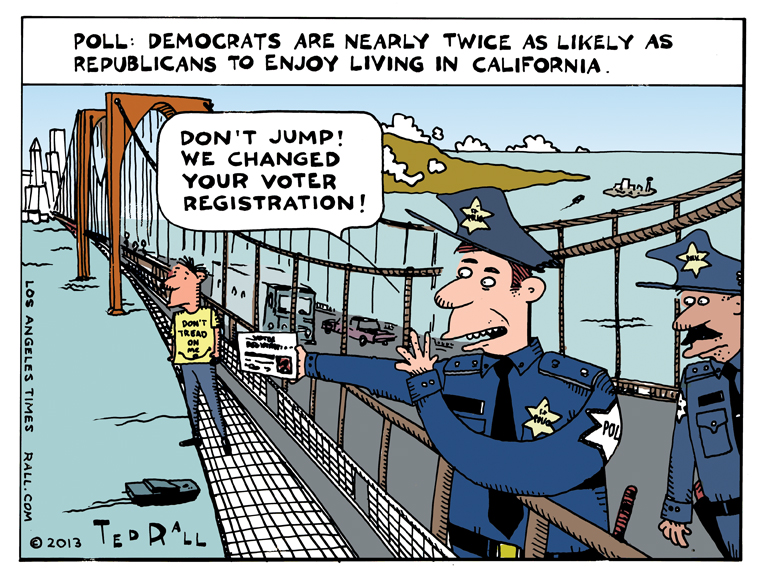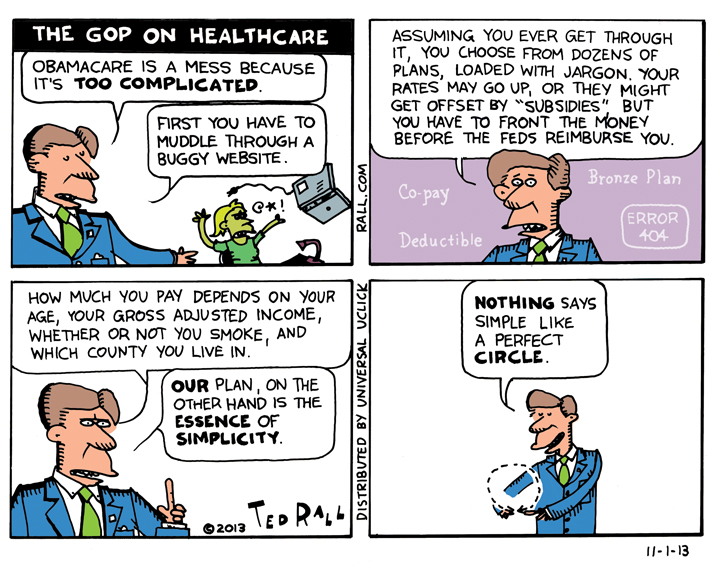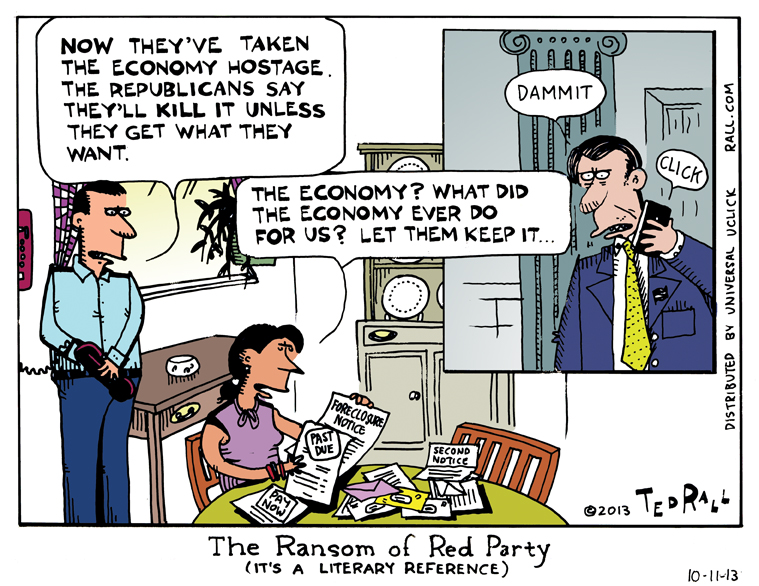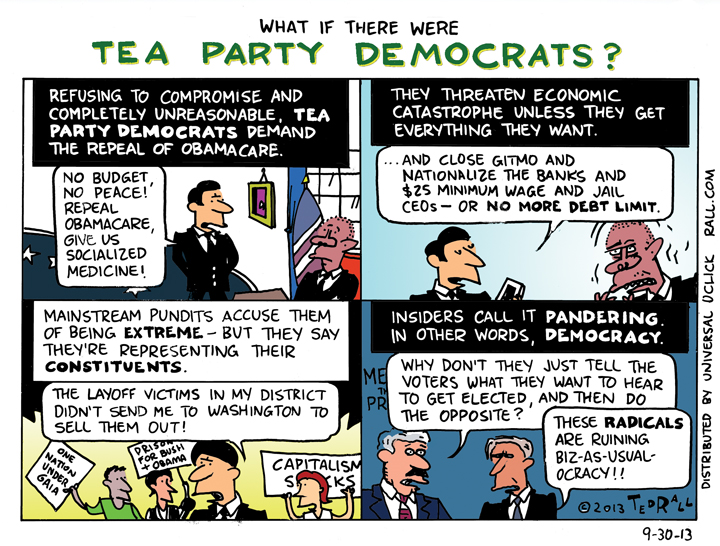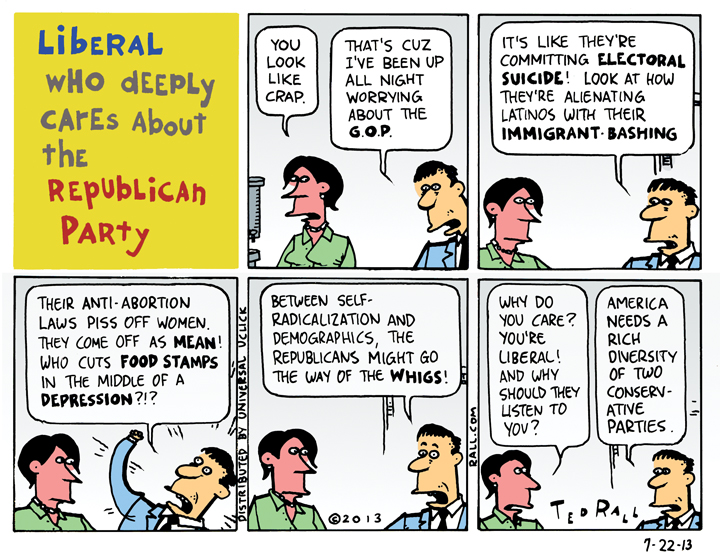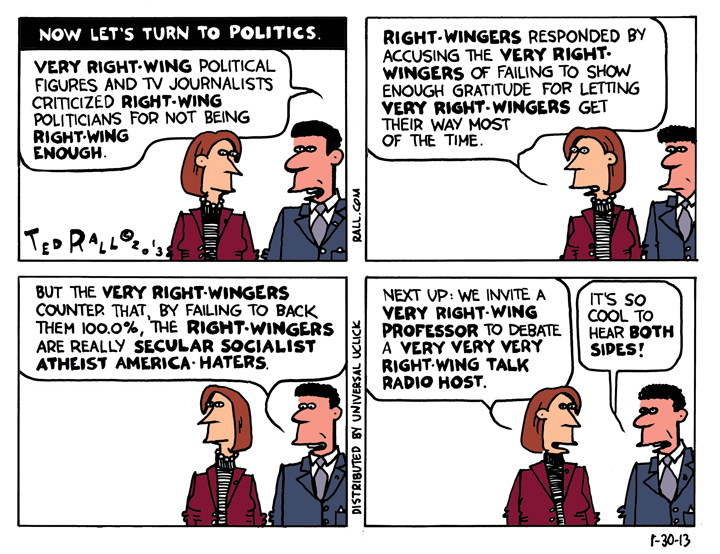I draw cartoons for The Los Angeles Times about issues related to California and the Southland (metro Los Angeles).
This week:
According to a new poll, “Californians’ perceptions about living in the Golden State are fractured along political, geographic and generational boundaries.”
Is California one of the best places to live? 53% of Democrats say yes. Only 26% of Republicans do.
Even if you’re liberal, the knowledge that conservatives are bummed out about living in the same state that you consider paradise has to give you pause. After all, you’re liberal. You’re supposed to care about other people — especially other people who tell you that they don’t care about you.
Also, you might ask yourself: what if I’m wrong and they’re right? What if California really is hell on earth? Does that make me…crazy?
What I want to know, and the poll does not and cannot reveal, is why members of the two major parties view the state’s quality of life so differently. Is it political — are Republifornians chafing under Governor Jerry and a Sacramento dominated by his Dems? Or does it reflect different worldviews? When Republicans look at the sky, do they see a different hue? When they hear the words “Miley Cyrus,” do their hearts quiver at an alternate frequency?
What about third parties? How do Greens and Libertarians enjoy/hate living here?
Anyway, this cartoon falls into the “illustrative” category of the political toon genre — a piece that doesn’t take an editorial stance, but rather shows what’s going on for its own sake. I have often been critical of this type of cartooning, but I make exceptions (hey, to be human is to be a hypocrite) for cartoons that highlight minor blink-and-you’ll-miss-it stories that have, or may have, broad implications.
Which this one is.
Now that you know that right-wingers dislike living in California, maybe you should consider being nicer to the dude in the monster truck-sized SUV who cuts you off if it has a Tea Party bumper sticker. Chances are, he’s depressed enough us as it is without you honking at him.
Also, he’s more likely to be armed.

